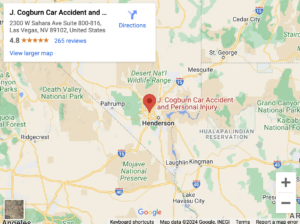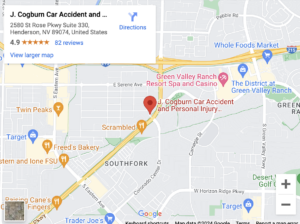
If you are injured because of someone else’s negligent or willful conduct, you may be entitled to compensation for both your economic damages and non-economic damages. In some cases, you may be able to reach a settlement agreement with the responsible party. Otherwise, you might have to file a lawsuit to get compensation.
If you are found to be partially responsible for the accident that caused your injuries, the amount of compensation you receive may be reduced. Depending on your level of fault, you might be barred from recovering any compensation at all under the contributory fault rule. Dive into the details below to learn more about contributory fault.
What is Contributory Fault?
Contributory fault is a rule in tort law that prevents an injured person from recovering compensation for their injuries if their own negligence contributed to their accident. This rule is sometimes called contributory negligence.
If contributory negligence applies, an injury victim will be barred from getting compensation for their injuries if they are found to be even 1% at fault for their accident. Imagine you are injured in a car accident and suffer $100,000 in damages. Suppose that you are found to be 1% responsible for your accident because you were going 1 mile per hour over the speed limit. Under the contributory negligence rule, you would not be entitled to recover any of your damages from the other driver.
It is fairly evident that this is a harsh rule, and only four states, plus the District of Columbia, follow this doctrine. Those states include:
- Alabama
- Maryland
- North Carolina
- Virginia
- District of Columbia
A common method the insurance company uses to try and avoid paying your claim is to blame you for the accident. This is especially true in jurisdictions that follow the contributory negligence rule. An alternative rule, known as comparative negligence, is followed by most states.
What Is Comparative Negligence?
Comparative negligence is a rule that still allows you to recover damages even if you are being partially blamed for your accident. Under this rule, your recovery is reduced by your portion of the fault.
For example, imagine you sustain $50,000 in damages from a slip and fall accident. However, you are found to be 20% responsible for the accident because you were texting as you walked. You would still be entitled to recover 80%, or $40,000, of your damages.
Some states follow a pure comparative negligence rule, while others use a modified comparative negligence rule. Under pure comparative negligence, you would still be entitled to recover damages even if you were 99% responsible for your accident.
However, the modified comparative negligence rules set the bar a little lower. Depending on the state, the cutoff for your right to recovery is 50% of liability. If you have more fault than the other party, you are generally not allowed to recover damages.
Even in states that follow the comparative negligence doctrine, the insurance company may still try to blame you for the accident. They are out to protect their bottom line, and this tactic can minimize the amount they have to pay for your claim. Be prepared to defend yourself against this strategy.
What Rule Does Nevada Use for Personal Injury Cases?
Nevada law follows a modified comparative negligence rule for most personal injury cases. Under Nevada’s rule, an injury victim may still recover compensation as long as their “negligence was not greater than the negligence or gross negligence of the parties to the action against whom recovery is sought.”
This means you may still be entitled to recover damages in your Nevada personal injury case if you were less than 51% at fault. The comparative negligence rule applies to both your economic and non-economic damages. Some of the damages you may be entitled to recover in your personal injury case include:
- Medical bills
- Lost wages
- Future lost earnings capacity
- Property damage
- Pain and suffering
- Emotional distress
- Depression
- Anxiety
- Loss of quality of life
- Loss of consortium
You should never admit fault after a car accident. Even a simple “I’m sorry” could be used against you later as taking partial responsibility for the accident. This could lower the amount of damages to which you are entitled, or it could prevent you from recovering any damages at all.
If you have been hurt in an accident, it is usually in your best interest to seek the help of an experienced personal injury lawyer. At Cogburn Davidson Car Accident & Personal Injury Lawyers we can investigate your accident, defend you against blame, and hold the responsible party accountable for your injuries. Contact us at 702-996-4786 to receive a free consultation.


